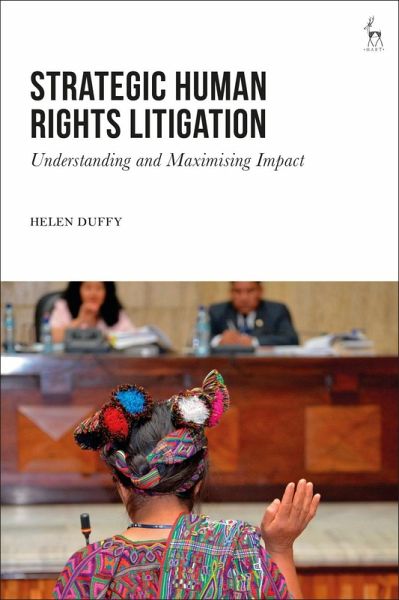
Strategic Human Rights Litigation (eBook, ePUB)
Understanding and Maximising Impact
Versandkostenfrei!
Sofort per Download lieferbar
29,95 €
inkl. MwSt.
Weitere Ausgaben:

PAYBACK Punkte
15 °P sammeln!
Strategic human rights litigation (SHRL) is a growing area of international practice yet one that remains relatively under-explored. Around the globe, advocates increasingly resort to national, regional and international courts and bodies 'strategically' to protect and advance human rights. This book provides a framework for understanding SHRL and its contribution to various forms of personal, legal, social, political and cultural change, as well as the many tensions and challenges it gives rise to. It suggests a reframing of how we view the impact of SHRL in its multiple dimensions, both posi...
Strategic human rights litigation (SHRL) is a growing area of international practice yet one that remains relatively under-explored. Around the globe, advocates increasingly resort to national, regional and international courts and bodies 'strategically' to protect and advance human rights. This book provides a framework for understanding SHRL and its contribution to various forms of personal, legal, social, political and cultural change, as well as the many tensions and challenges it gives rise to. It suggests a reframing of how we view the impact of SHRL in its multiple dimensions, both positive and negative. Five detailed case studies, drawn predominantly from the author's own experience, explore litigation in a broad range of contexts (genocide in Guatemala; slavery in Niger; forced disappearance in Argentina; torture and detention in the 'war on terror'; and Palestinian land rights) to reveal the complexity of the role of SHRL in the real world. Ultimately, this book considers how impact analysis might influence the development of more effective litigation strategies in the future.













